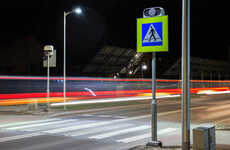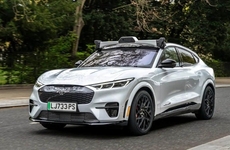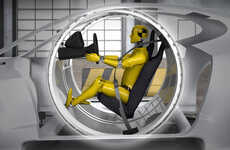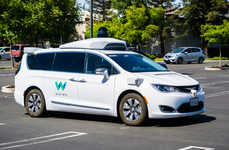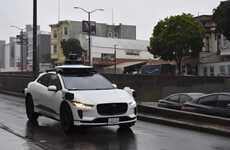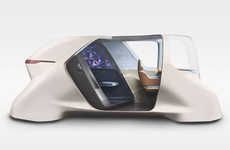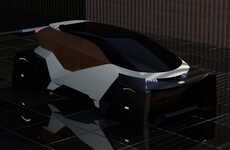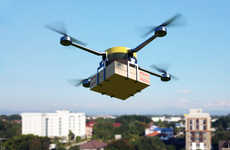
'Waymo' Could Soften Itself If It Detects a Collision
Ellen Smith — August 15, 2017 — Autos
References: digitaltrends & dezeen
Waymo, Google's self-driving car could feature a design that allows the vehicle to soften itself if it detects a potential collision with a pedestrian.
Even though research suggests that autonomous vehicles would contribute to a decrease in road collisions, accidents are still bound to happen, and any time there's a car involved, it could be fatal. To ensure optimal safety for not just its drivers, but everyone, Waymo developers are working on securing a patent that allows the car's exterior to "alter its rigidity" when it detects its about to hit a pedestrian. The car will do so through elements embedded within it, called "tension members." When the car detects a potential collision, a signal will be sent to these tension members, prompting the car to alter the "hardness" of its panels.
Even though research suggests that autonomous vehicles would contribute to a decrease in road collisions, accidents are still bound to happen, and any time there's a car involved, it could be fatal. To ensure optimal safety for not just its drivers, but everyone, Waymo developers are working on securing a patent that allows the car's exterior to "alter its rigidity" when it detects its about to hit a pedestrian. The car will do so through elements embedded within it, called "tension members." When the car detects a potential collision, a signal will be sent to these tension members, prompting the car to alter the "hardness" of its panels.
Trend Themes
1. Pedestrian-safe Autonomous Vehicles - As self-driving cars become more commonplace, the focus will shift to developing new safety features to protect pedestrians and other vulnerable road users.
2. Adaptive Car Design - The use of embedded tension members to alter a car's rigidity highlights the potential for future car designs to be more adaptable and responsive to their environment.
3. Patented Safety Technology - Waymo's patent signals a push in the industry to develop unique safety features that give companies a competitive edge in the self-driving car market.
Industry Implications
1. Automotive Manufacturing - The development of pedestrian-protecting features presents opportunities for the automotive industry to enhance their designs, making their vehicles more attractive to safety-conscious consumers.
2. Autonomous Vehicle Technology - In the race to develop the most advanced autonomous vehicle technology, safety features such as pedestrian protection will become a key area of competition.
3. Public Transportation - With increasing interest in autonomous public transportation, the development and incorporation of safety features will be crucial to gaining public trust and acceptance of these new technologies.
1.7
Score
Popularity
Activity
Freshness



